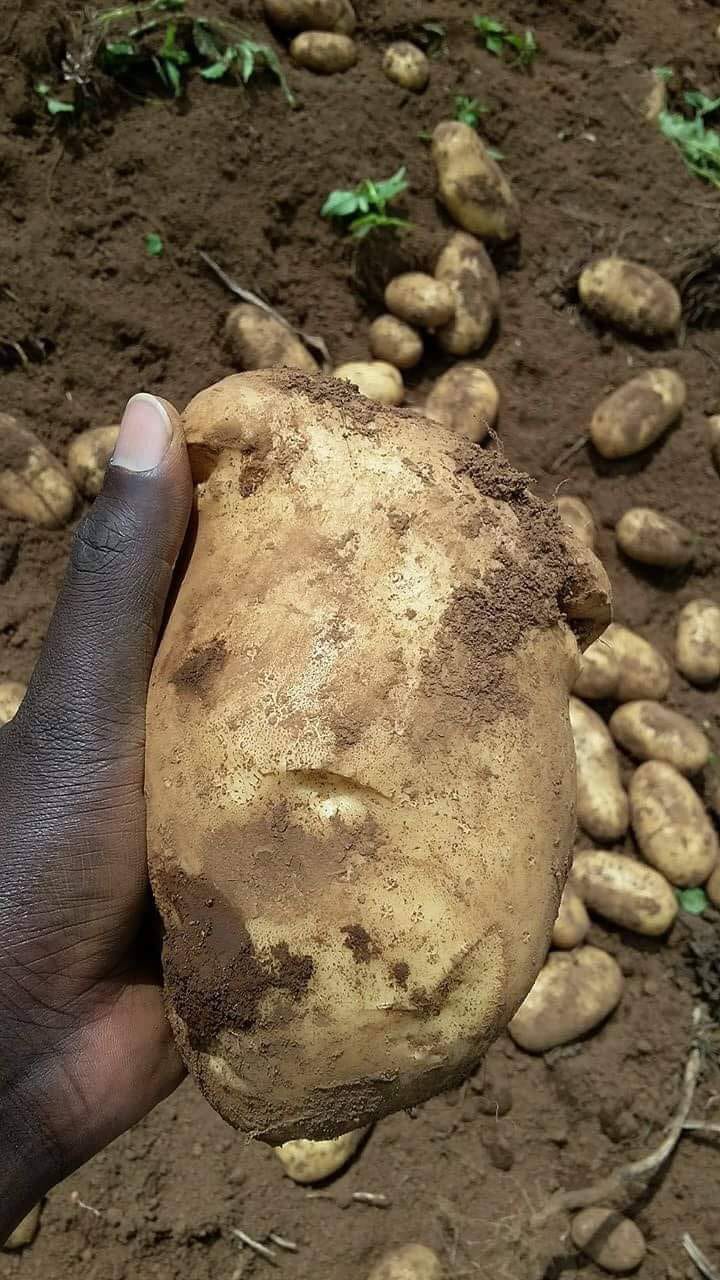 Markies potato seed variety. It is best for fresh fry as it has slightly low dry matter content. Photo courtesy.
Markies potato seed variety. It is best for fresh fry as it has slightly low dry matter content. Photo courtesy.
Kenyan farmers are now able to access clean potato seeds for planting after Agrico East Africa, a subsidiary of Agrico in Kenya that multiplies and distributes Agrico's potato varieties locally decided to multiply the seeds twice a year from the previous once a year.
This is to meet the increasing demand among local growers which is over 133 metric tonnes per day.
“We have decided to double our potato seed multiplication process because we have realized in the recent past that over 1,200 tonnes produced can all be bought in nine days. Currently, we produce 40 tonnes of seeds per 20 hectares,” said Mr. Kaituyu Sungura, Agrico East Africa agronomist.
RELATED CONTENT: Molo farmer helping colleagues get clean potato seeds amid acute shortage
The company used to run out of stock before the year ends hence farmers who wanted to plant the crop during the end year short rains could lack the seeds leading to a severe shortage of the produce in various markets.
“Right now, we are planting to multiply the seeds for a short rainy period of November and December. We expect the seeds to be ready for harvesting by end of July then we give them one month dormancy period so that by September they will be ready for farmers,” said Sungura.
The parent seeds are imported from the Netherlands every year and the company is currently dealing in over 13 approved seed potato varieties in the Kenyan market.
However, at an advance stage is multiplication and distribution of at least three potato varieties such as Destiny, Manitou and Markies to local farmers.
RELATED CONTENT: Potato seed multiplication earns farmer good cash
According to Sungura, the three varieties are hot cakes in various local markets due to their wide applications. Markies are best for fresh fry, Destiny for crisps due to its high dry matter content than Markies while Manitou is best for home baking with most food processing companies preferring Destiny and Markies.
“There is also another variety called Rudolph which is preferred by farmers in low rainfall areas because it does not need much rainfall as it is heat tolerant,” said Sungura.
RELATED CONTENT: Farmers speed sweet potato planting with multiplication system
With good agronomical practices which include soil testing and analysis, the right chemical usage and fertiliser among others, a farmer can be sure of harvesting 12-16 tonnes per acre in 90-100 days maturity period.
Farmers can access the seeds from the company’s production site in Nakuru County or pay through preferable mobile transfer and get the seed transported to them at their (buyers’/farmers’) cost.
The company also offers production training and advice for free to farmers so long as the farmer presents their soil sample analysis.
The company can be reached on +254 722 206179 or This email address is being protected from spambots. You need JavaScript enabled to view it.
















Comments powered by CComment